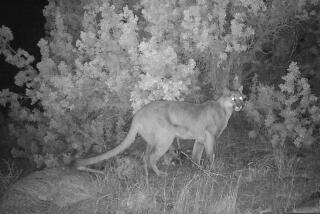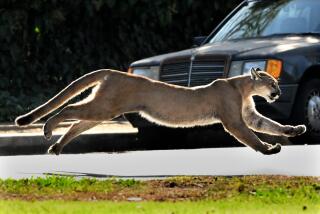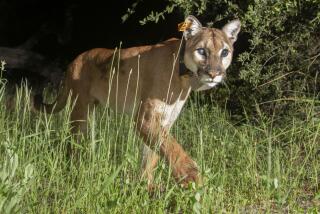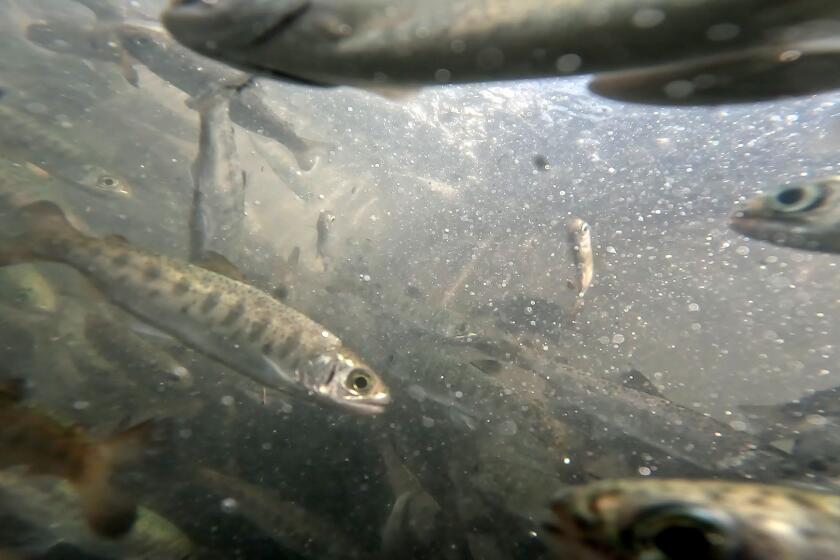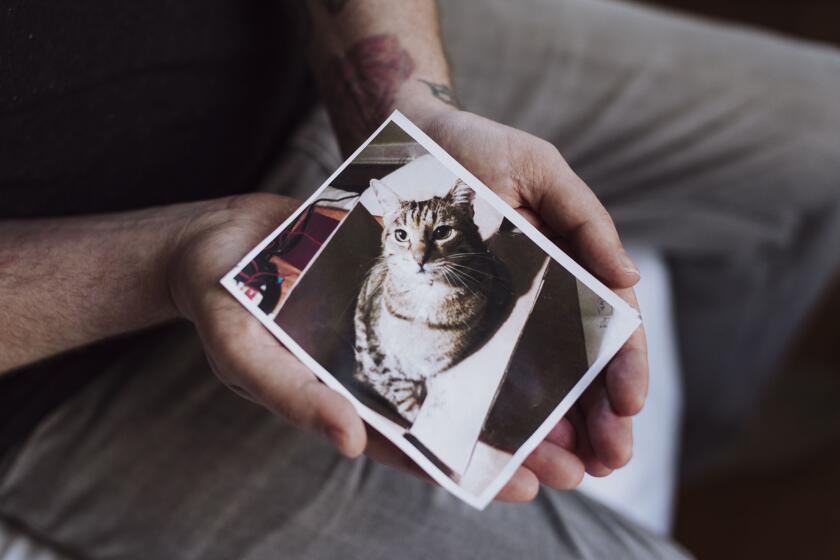Hubert and Kalisa, longtime African lion partners at the L.A. Zoo, are euthanized
After living long lives, the L.A. Zoo’s African lion companions Hubert and Kalisa have died, zoo officials said Thursday.
The lions, both 21 years old, were euthanized after age-related health problems began diminishing their quality of life, the L.A. Zoo said in a news release.
Hubert and Kalisa shared a strong bond that was visible to guests and staff over the past six years of their companionship at the L.A. Zoo, said animal programs director Beth Schaefer.
“These lions were charismatic both together as partners and separately, but they were hardly ever apart from one another,” she said. “Their undivided attention was always on the other as they rested together, cuddled and nuzzled often.”
Though Hubert fathered 10 cubs over his life, he and Kalisa did not have cubs together.
“This is a very hard loss for our zoo community,” Alisa Behar, the zoo’s curator of mammals, said in a statement.
“In the early mornings, staff would routinely hear Hubert’s waking roars, and I will personally miss hearing them on my walks around the grounds. You cannot think of Hubert without thinking of his companion, Kalisa; they’ve been an inseparable couple for years.”
Hubert was born Feb. 7, 1999, at Chicago’s Lincoln Park Zoo and Kalisa was born Dec. 26, 1998, at the Oklahoma City Zoo. They eventually made their separate ways to Seattle’s Woodland Park Zoo, then moved to the L.A. Zoo together in 2014.
The lions lived longer than most. According to zoo officials, most African lions in the wild live to be in their early teens, and those in captivity live to be 17 on average.
“Hubert and Kalisa are an iconic part of the L.A. Zoo experience, and our staff and guests have been touched by their loyal companionship,” zoo CEO Denise Verret said in a statement. “Their longevity is truly a testament to the level of expert care our veterinary and animal care teams provide for our elderly animals. These lions will remain a positive part of our history, and they will be greatly missed.”
Due to prey depletion and the illegal trade of lion body parts for traditional medicine and other uses, African lions are considered vulnerable. There are believed to be fewer than 25,000 lions living in Africa.
More to Read
Start your day right
Sign up for Essential California for news, features and recommendations from the L.A. Times and beyond in your inbox six days a week.
You may occasionally receive promotional content from the Los Angeles Times.
